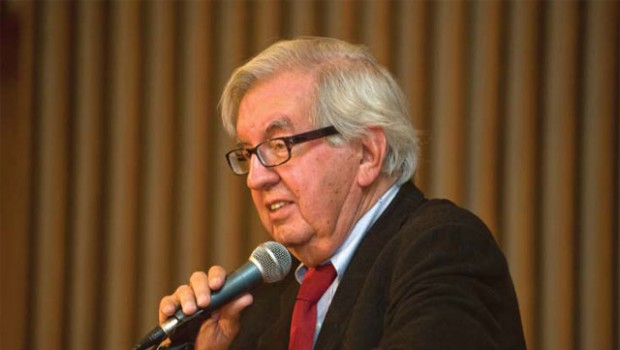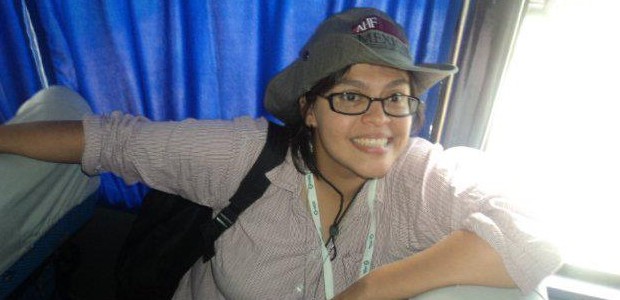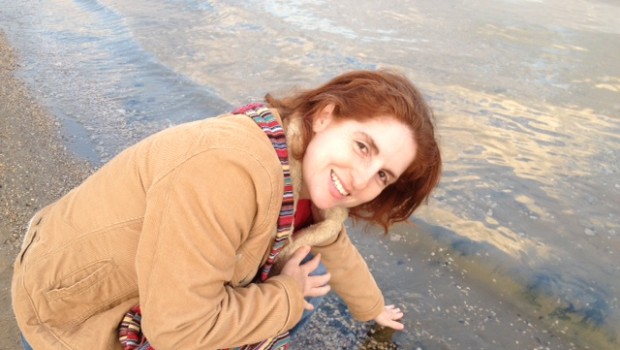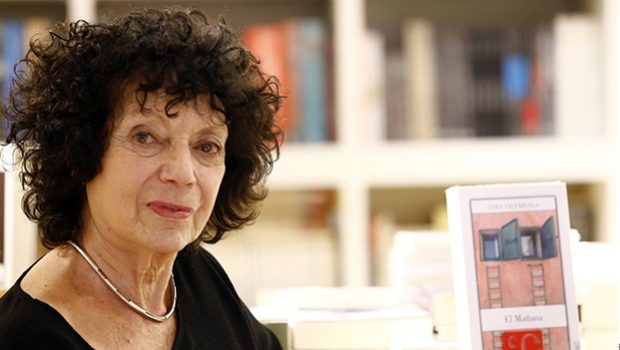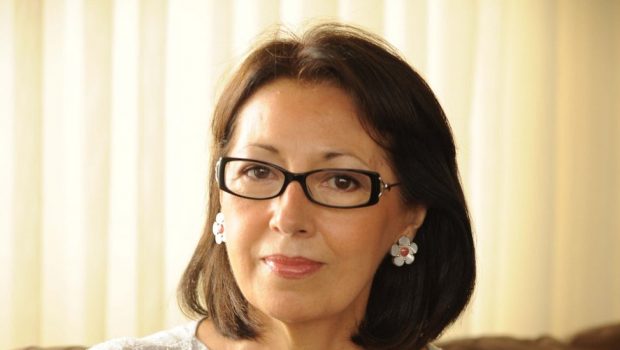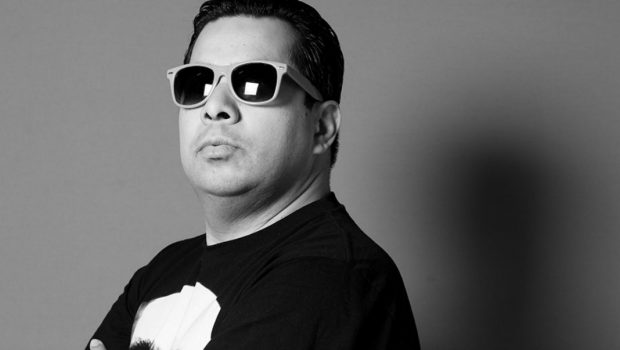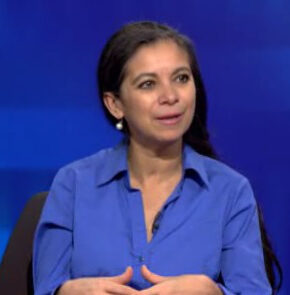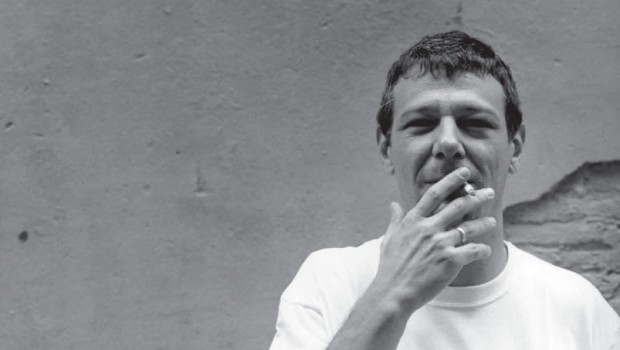Lonesome Larry McMurtry Ponders the Fate of Books
David D. Medina
A few hours before he presents the Friends of Fondren Library Distinguished Guest Lecture, Larry McMurtry prepares for lunch at the Four Seasons Hotel in downtown Houston. The Rice alum and Pulitzer Prize winner is casually dressed in a dark blue sports jacket, running shoes and his trademark jeans. His disheveled gray hair makes him appear a bit under the weather. When asked how he’s doing, he responds, “I feel allergized.” Then he goes into a minor discourse about the cause of his malady, the Desert Fever, which originates in dry riverbeds and affects the residents of such desert cities as Tucson, where he lives part of the year.
McMurtry speaks in a slow Texas accent, but he’s quick to answers questions. At 72, he’s as sharp as a spur—his encyclopedic mind can impart obscure information on any number of topics: writers, history, diseases, comics, and manners. That knowledge comes from the 28,000 books stored in his personal library and the 1 million books he has handled as an antiquarian bookseller. “I have been reading for 65 years, and that’s a lot of years,” he explains. “You read a lot of books in that period of time.”
During that time, McMurtry has also written a lot of books: 29 novels, two collections of essays, three memoirs and more than 30 screenplays. He won the Pulitzer Prize for Lonesome Dove, and won an Oscar for co-writing Brokeback Mountain.
“He’s certainly a productive writer and very good at times,” says Walter Isle, retired Rice English professor. Isle has known McMurtry since 1960, when they both attended Stanford University as English students. “I think he is a good storyteller. He’s a very good essayist and he knows a lot about the American West,” Isle adds. Born in 1936 in Wichita Falls and raised outside Archer City, McMurtry began his literary journey when he was six years old. He was living on a cattle ranch deprived of books, but one day his cousin, on the way to enlist for the Army, dropped off a box of 19 adventure books for him. “I picked up a book out of the box and I have been reading ever since,” he says. “I’d play hooky from the fi rst grade to read.”
McMurtry is fond of saying that his parents wanted him to stay at the ranch and herd cattle, but he wanted to herd words. He wanted to go away to college, but his mother wanted him to study at Midwestern State University in Wichita Falls.
“My father then had the worst idea of all, which was that I go to Texas A&M and become a vet,” Mc- Murtry writes in his latest tome Books: A Memoir, which talks about his passion for books. “I’m not sure why my father made that suggestion, which, had it been adopted, would have been a mistake of epic proportion. Probably he just reasoned that good vets were in short supply—ergo, I would have a job.
“I was saved from this only by the happy accident of sitting down in front of our new TV and watching a program about Rice Institute (now University) in Houston. The campus had what I supposed to be an Oxfordlike look—actually the architecture was partly Moorish, and I, of course, had never been to the real Oxford then, but the program pointed out that the school was organized on a college system, like the real Oxford.
McMurtry says he was initially rejected at Rice, but was put on the waiting list and eventually admitted. He says he knew from the beginning that his stay at Rice would be temporary, because freshman math at Rice started with calculus, and his math stopped at Algebra II. He would, however, stay at Rice on three different occasions: as a freshman from 1954 to 1955, as a graduate student from 1958 to1960 and as a professor from 1963 to 1969.But best of all, Rice was free—if one could get in. My parents liked the idea of free.”
As a freshman, McMurtry moved into a garage apartment on South Boulevard near Shadyside, where Oveta Culp Hobby lived. He had three roommates, one of whom was Douglas Milburn, who received a B.A.’56, M.A. ’61 and Ph.D. ’64 in German. For McMurty, one of his fondest memories of Rice was the Fondren Library, which at the time contained 600,000 volumes. “I was, to say the least, thrilled, and when I went back to Rice as a graduate student and, later a professor, I still spent much of my time wandering around Fondren,” Mc- Murtry writes in Books.
McMurtry adds that he romanticized Fondren in a book called All My Friends Are Going to Be Strangers, in which the hero, Danny Deck, sleeps on the couches of the library.
When McMurtry arrived at Rice in 1954, he says that the university was just beginning to balance humanity and the sciences. “It was still, however, an old-fashioned John Hopkins-type school with a lot of philology, German, French, and Old English,” he says. “It was taught by a generation of people like Alan McKillop, who had studied at Harvard with William James.” McMurtry also remembers being taught by English professors Jack Snide Cope and Wilfred Dowden, who died in 1999. Sumarie Dowden says that her husband often talked about the young McMurtry. “Larry was in Wilfred’s freshman class and he said that Larry was very smart and knew a lot more about literature than any student his age,” she says. McMurtry says that Dowden encouraged him to take George Williams’ creative writing class, which was reserved for upper classmen, but Larry didn’t stay long enough at Rice to be eligible to take the course.
“I knew I was going to leave Rice almost from the time I was three weeks there,” McMurtry says. Like many Rice students of his time, McMurtry fell victim to Math 100, a course in which the highest grade he received was a four out of 100.
Though he felt as if he had to leave, McMurtry still thinks fondly of Rice. “I began reading seriously when I was at Rice. I love Rice. I think of it as my intellectual home,” he explains. “And I think of Houston as my fi rst city. I also love Houston.” McMurtry transferred to North Texas State College (now University of North Texas), in Denton, where his interest in writing began after taking a creative writing class with English Professor Jim Brown. McMurtry received his B.A. in 1958 from North Texas and returned to Rice for graduate studies in English. During one summer he wrote his master’s thesis on Ben Jonson’s Feud with the Poetasters, 1599-1601. “It was a boring subject,” he says. McMurtry planned to pursue his doctorate in English but settled for a master’s in 1960. By then he had fi nished a fi rst draft of his fi rst novel and a fi rst draft of his second novel. He used both manuscripts to apply to the Wallace Stegner Fellowship creative writing program at Stanford University, where he spent a year.
From California, McMurtry returned to his home state to teach at Texas Christian University for a year and then moved back to Rice to teach freshman English and creative writing. “I had the ideal teaching job,” McMurty says. He had to teach only two classes a semester while at TCU he taught fi ve. “If I had wanted to remain in academia, I could have stayed at Rice.” Instead, he decided to write books and become an antiquarian bookseller. McMurtry developed his method of writing when he was 23. He would get up early, including on holidays and weekends, and write fi ve pages a day. As he became more proficient, he increased the number of pages to 10. “Very quickly I came to realize that I couldn’t write anything short,” he writes in Books. “I was neither a poet nor a short story writer.”
Like a scribe from the past, McMurtry continues to use a manual typewriter—a Hermes 3000. McMurtry remains unabashedly a dinosaur in the world of technology. He has never used a computer, never written an e-mail, and doesn’t use Google to do research. “It just takes more time away from reading and writing,” he says. “The only way I have managed to improve anything is by typing it over. I do three drafts, which is usually enough.”
As for research, McMurtry claims he doesn’t do any. “My research has been my lifelong reading.” Reading, in fact, is his source of inspiration. “Mostly the reading fertilizes the writing, this is a constant process. Reading is the aquifer that drips, spongelike, into my fiction,” he writes.
By plucking away at his typewriter every day, Mc- Murtry has produced a body of work that by any measure is extraordinary: more than 30 books and counting. Such an outpouring of writing can produce unevenness, and McMurtry admits that. In Books, McMurtry offers a humble assessment of his books: “Most were good, three or four were indifferent to bad, and two or three were really good.” In an interview, he says that if he had to pick his best book, he would probably go with Duane’s Depressed, which is part of a series that started with The Last Picture Show. He considers Lonesome Dove as the Gone With the Wind of the West.
Not by any stretch of the imagination is McMurtry slowing down. He will have a novel published this June 2009, called Rhino Ranch, and he is working on the last two books of his memoirs, one about writing and another about Hollywood. He hopes he doesn’t have to write another book of fiction. “Eventually all novelists, if they persist too long, get worse,” he states. “Writing great fiction involves some combination of energy and imagination that cannot be energized or realized forever.”
Indeed, McMurtry would rather read than write. He considers writing an avocation, something he does to bring in money. “Reading, to me, is the perfect pleasure: it’s stable, it’s inexpensive, it’s gratifying. It’s everything a culture should be,” he explains. After years of reading for adventure, McMurtry says that today he reads for security. He is rereading the books in his vast, personal library, and he especially enjoys rereading the 12-volume diary of an English man of letters by the name of James Lee-Milne, who was an expert on country houses.
For the past 55 years, McMurtry has been collecting rare books and selling them. He once had a bookstore in the Houston Heights called Booked Up, which he closed. For years, he operated Booked Up in Washington D.C. before he moved the bookstore to Archer City, where it remains with more than 400,000 books. But starting in 2001, during the dot-com bubble bust, McMurtry says he noticed a pattern that was disconcerting. People were not buying books and book dealers were selling out to him. Almost overnight, he says, his bookstore became a temple and not a commercial enterprise. “People come in and will sit on a chair and hold the book and don’t read it. They hold the book as if it were a Talmudic object from a past culture,” he says. McMurtry fears that the book culture that has worked for 500 years is coming to an end.
Young people, especially, do not read anymore, says McMurtry. “Children love to read and love to be read to, but when they reach 12, they are hit by a tsunami of technology: iPod, IPhone, Blackberries, computers.” He adds that libraries don’t want books anymore; they want computers. Electronic books, such as the Kindle, are getting better, but he says, “When I see someone reading War and Peace on a Kindle, I know the end has come.” In his Friends of Fondren lecture, McMurtry stands in the Grand Hall of the Rice Memorial Center addressing an overfl ow crowd of 700 middle-aged people. In closing, he reads a poem by Philip Larkin called “Going, Going,” which expresses McMurtry’s feelings about the death of books. In the poem, the poet is unable to bear the changes taking place in his beloved England. As McMurtry reads the poem, he chokes up. At one time he believed that the book culture—that beautiful culture he so dearly loves—would last forever. “It will never come back,” he tells the crowd. “I hate to be so gloomy, but that is my view after 55 years of bookselling.”
Posted: April 17, 2012 at 8:35 pm


